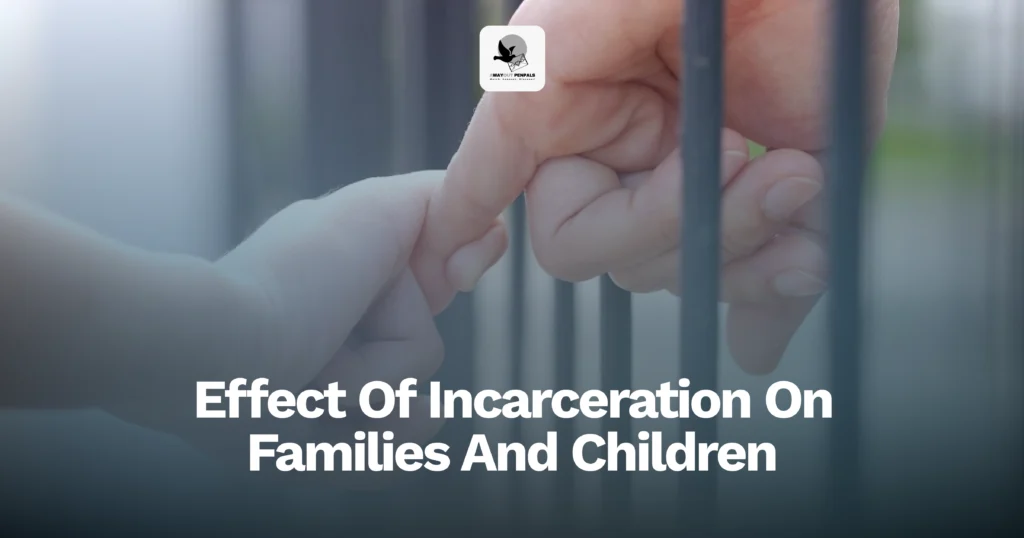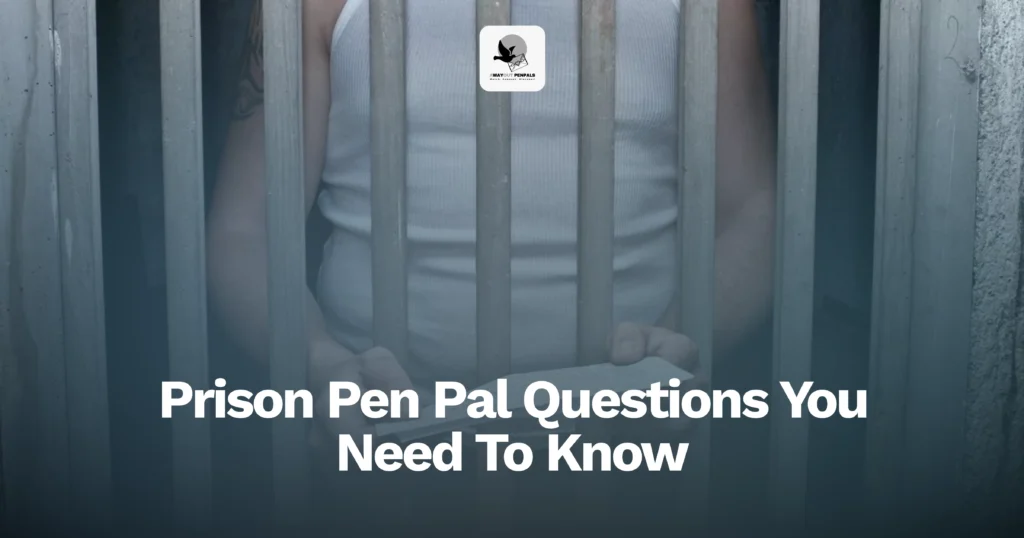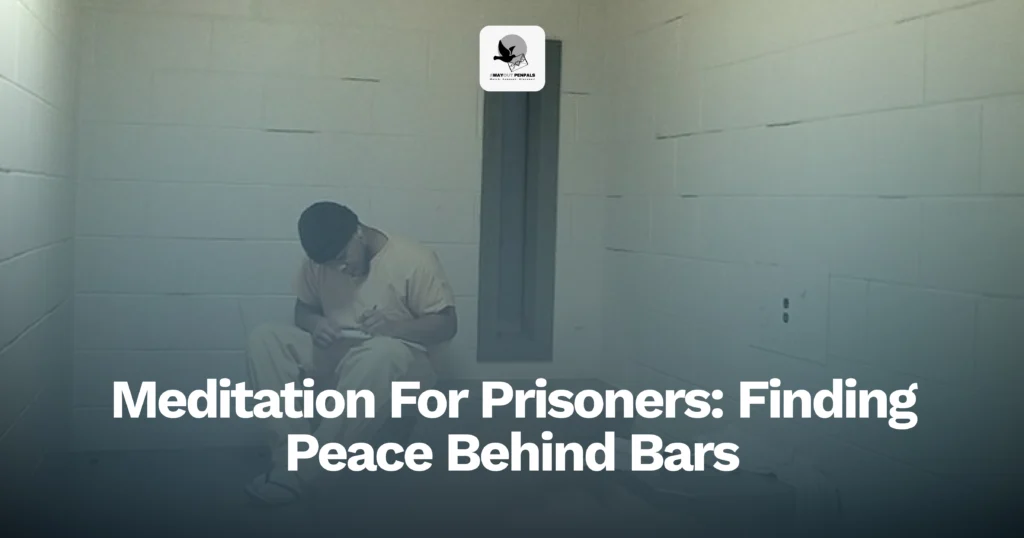More than 10 million kids in the U.S. have had a parent involved in the criminal justice system
Right now, 1 in 28 children has a parent in prison.
And 1 in 14 has lived through it at some point.
That’s not a small number. That’s over five million children, kids who go to school, play outside, and try to grow up like everyone else… but with a missing piece in their lives.
When someone is sent to prison, it’s not just the incarcerated individuals who pay the price. Their whole family does too. The social effects, financial effects, and emotional effects can last for years, sometimes a lifetime.
This blog isn’t just about the system. It’s about the real families behind the numbers. Let’s talk about effects of prison on the family and children when a loved one goes to prison, and more importantly, what we can do about it.
The Emotional & Psychological Effects of Incarceration on Children & Families
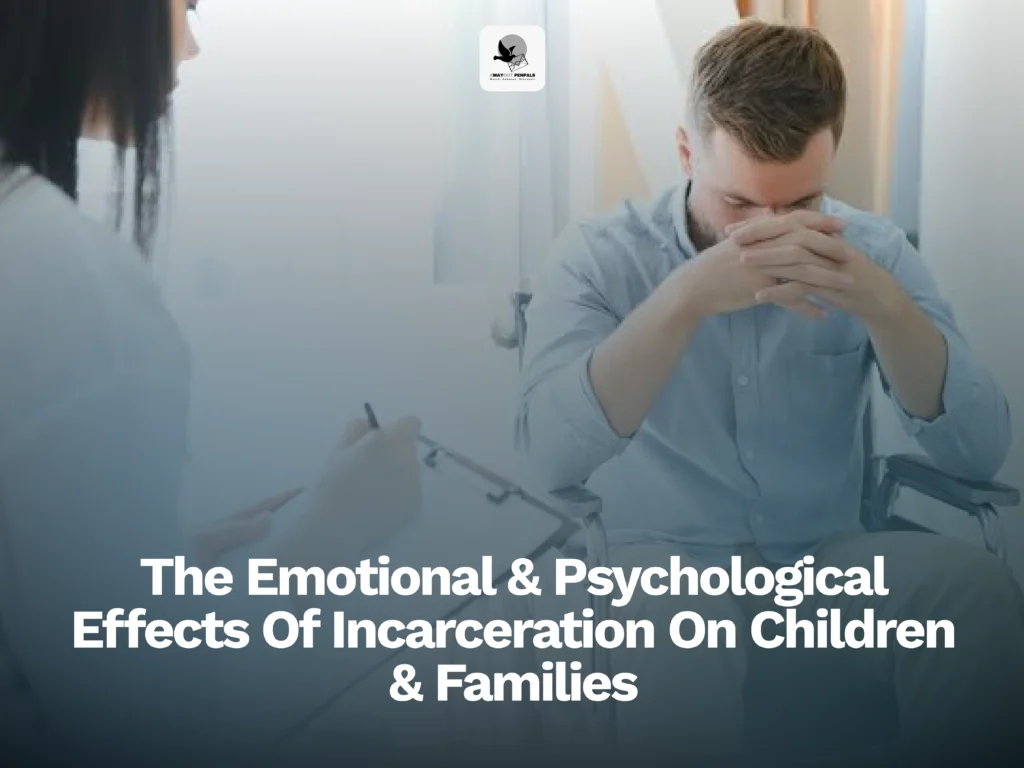
When a parent is behind bars, it feels like the whole world has shattered.
Children with incarcerated mothers or fathers often experience:
- Severe emotional trauma
Until I was 16, the visits were only through a glass window… I just wanted to hold his hand, so we put our hands against the glass window, acting like there was no window there.”
Jessica De la Mora, describing the emotional pain of visiting her father in prison (Teen Vogue)
- Behavioral issues and antisocial behavior
- Academic struggles like suspension, dropping out or low performance
- Mental health challenges, including anxiety, depression and emotional withdrawal.
In some places, like Connecticut, nearly 15% of children have experienced the incarceration of a parent. That’s a huge number and yet, it’s a topic rarely discussed openly.
The Silence & Stigma
Many of these kids feel ashamed. They hide their parent’s incarceration from teachers, classmates even friends. That silence leads to emotional shutdown, isolation, and a lack of support when they need it most.
They might not always know how to talk about it, but they feel it deeply.
It’s Not Just the Kids
And… it does’nt stop with the kids:
- Caregivers: often grandparents, aunts, uncles, or older siblings—are suddenly forced to step in. They juggle new responsibilities, deal with emotional burnout, and often face financial strain.
- Partners: left behind carry the emotional burden alone, raising kids, managing the household and their own grief and isolation.
Need support raising a child through this? Don’t miss our blog on How to Raise a Child With an Incarcerated Parent. It’s full of tips, tools, and emotional guidance.
Social Instability And Development Challenges
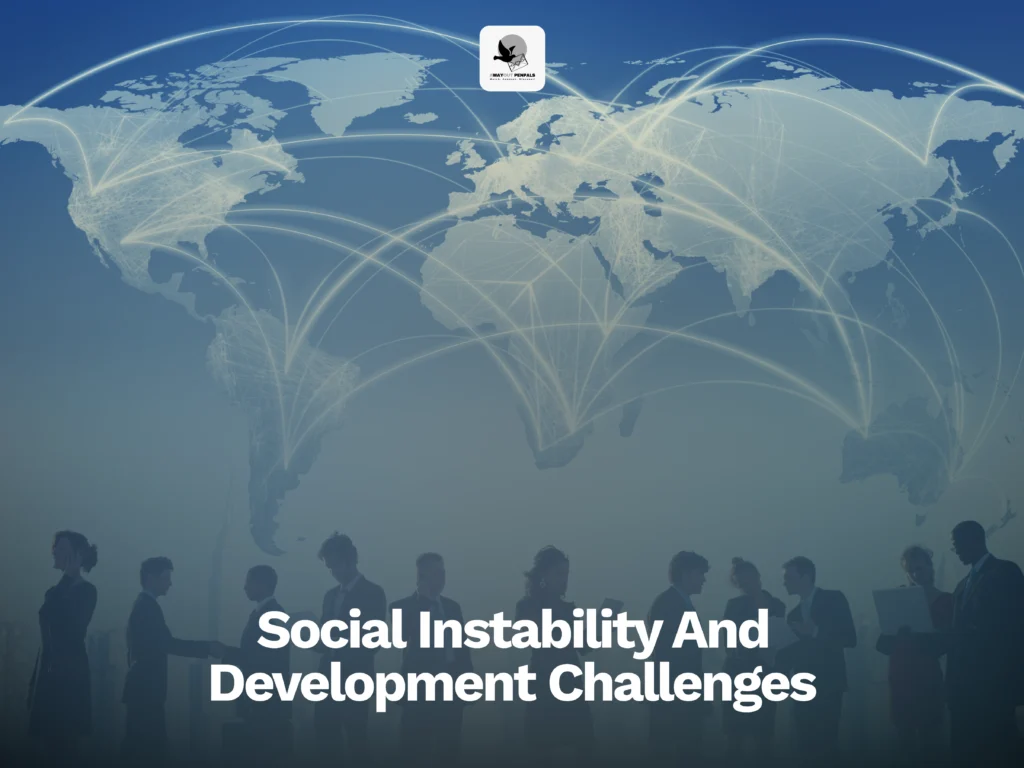
Children with incarcerated mothers, fathers or both often grow up too fast. Why? Because when one parent is removed, the family dynamic shifts. Suddenly, they may have to:
- Help care for younger siblings
- Move homes or live with different relatives
- Deal with financial struggles and insecurity
This puts a huge pressure on their young shoulders. It can interrupt their natural emotional development, leading to stress, fear or even resentment.
Studies from the National Institute of Justice and Boston University show that these children are more likely to:
- Experience mental health issues
- Struggle in school
- End up in the criminal justice system themselves
The Financial Effects of Incarceration
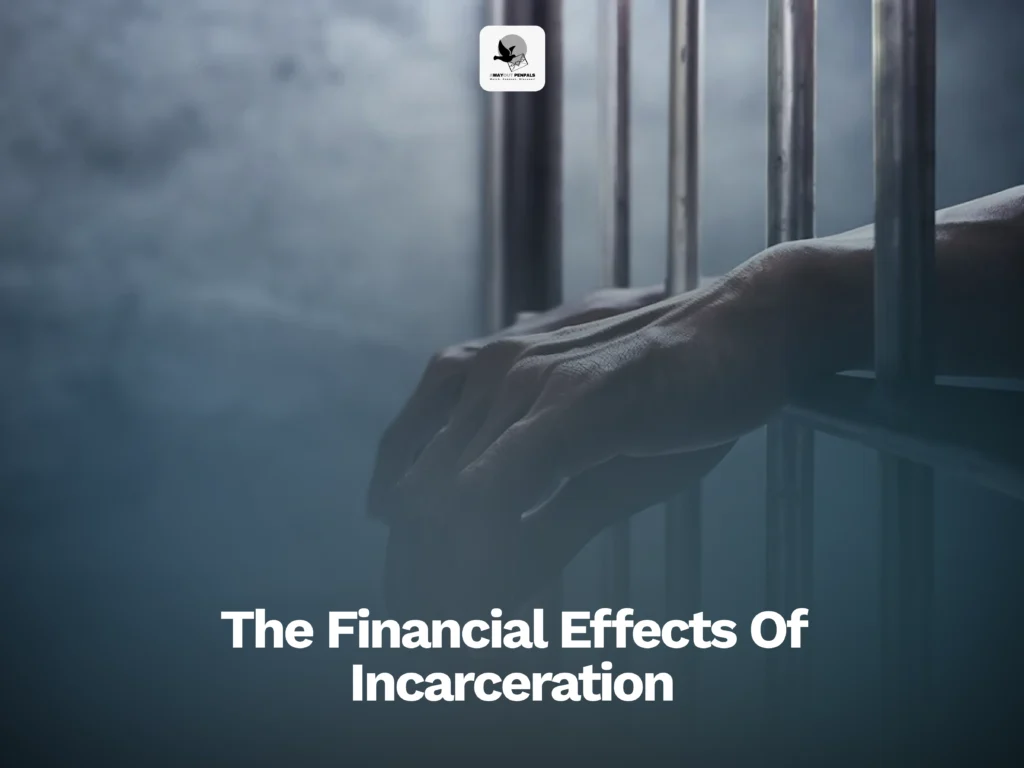
Let’s be honest: prison isn’t just punishment for person behind the bars as it drains the pockets and peace of the people left behind.
Families with an incarcerated loved one often struggle to:
- Replace lost income
- Afford calls, visits and care packages
- Cover court and legal fees
- Pay rent, bills and childcare
According to the Ella Baker Center’s report, Who Pays? The True Cost of Incarceration on Families:
- 2 in 3 families struggled to meet basic needs like food, clothing, or medical care due to incarceration
- Nearly 1 in 5 families couldn’t afford housing after losing a loved one’s income
- And 83% of those bearing these costs are women, most often mothers or grandmothers trying to hold the family together
Real Ways to Lessen the Load:
- Look for local reentry and family support programs that offer financial assistance, transportation, or food resources
- Advocate for prison phone justice, many states are working to cap prison call fees
- Connect with nonprofits like Essie Justice Group or Prison Fellowship that support families impacted by incarceration
- Budget and plan early with help from a caseworker or support organization, many offer free financial planning help
Because no family should have to choose between paying rent and staying connected to a loved one behind bars.
The Social Effects of Incarceration
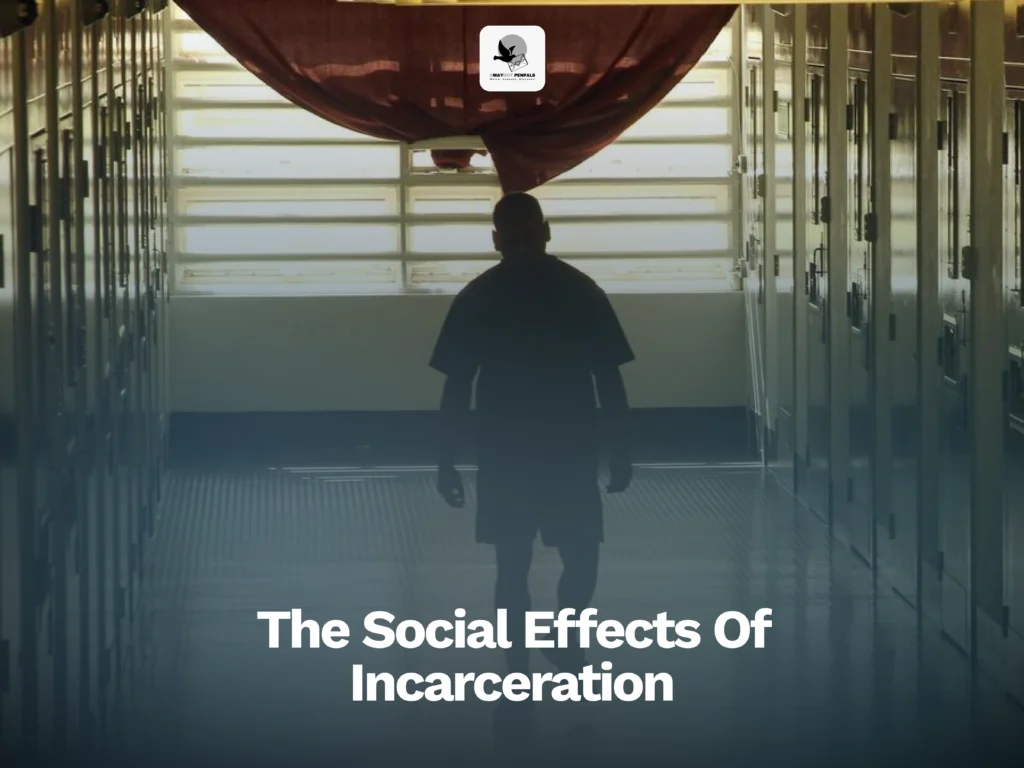
Judgment is another layer of pain for the children and families of incarcerated individuals.
Parental imprisonment comes with shame, both from the outside world and within the family. Kids may be bullied at school and caregivers may feel isolated. People stop calling. Some families go silent to avoid gossip.
The Long-Term Effects on Children And Families
The trauma doesn’t end when the prison sentence does. In fact, coming home can be its own challenge for both the formerly incarcerated and the people waiting for them.
According to the National Institute of Justice, more than 600,000 individuals return home from prison each year in the U.S. But the road back into family life and society? It’s full of challenges and tough moments.
Here’s what families often face after release:
Families often face:
- Struggles to rebuild trust and connection
- Anxiety over reentry and job stability
- Lingering emotional trauma in children
- Ongoing financial pressure
What Can Families Do? Real Advice That Helps
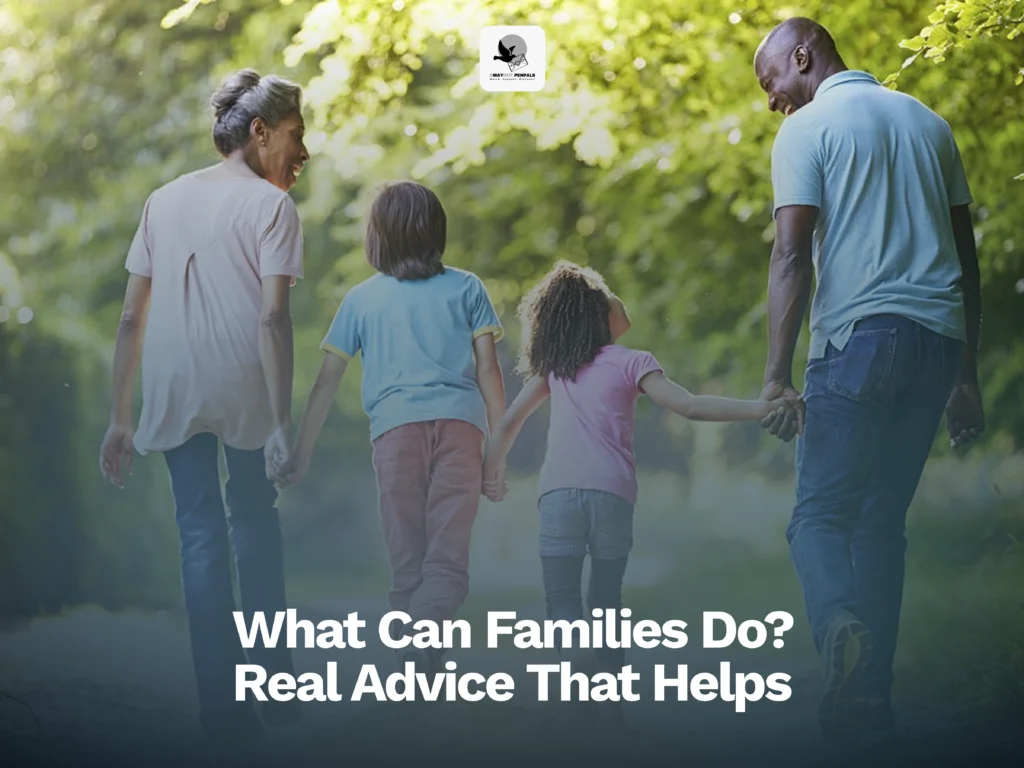
Here are some real things that can help you and your loved ones walk through this journey.
1. Keep Communication Open
Let kids talk. Listen without judgment. Use age-appropriate language to explain what’s happening and let them know they’re loved, no matter what.
2. Write Letters or Stay in Touch
Even small gestures like a note, a drawing, or a quick phone call can keep that connection strong. Programs like A way Out Pen Pals exist to help keep communication alive and meaningful.
3. Look for Support Groups
You’re not alone. There are support groups (in person and online) for families going through this. Talking to people who get it can make a huge difference.
4. Reach Out For Help:
Local nonprofits, churches, schools, and social services often have programs to support children with incarcerated parents. Don’t be afraid to ask.
5. Break the Silence:
If and when you’re ready, talk about your experience. Share your story. Advocate for better systems. You never know who needs to hear it, or how you might inspire change.
Wrapping Up:
The emotional and psychological effects of incarceration on children and families are real, deep and long-term. These kids aren’t just dealing with separation, they’re battling shame, fear, instability, and uncertainty about their future.
They need more than sympathy, they need understanding, community and action.
And it starts with us.
Looking to stay connected with someone who’s incarcerated?
Join the Away Out Pen Pals community. We help you build real, meaningful connections through letters.
FAQs
1. What are the main emotional effects on children when a parent is incarcerated?
Children often experience feelings of abandonment, confusion, sadness, anger, and shame. Many don’t understand why their parent is gone or may even blame themselves. Without proper support, these emotions can lead to anxiety, depression, and withdrawal from others.
2. How does parental incarceration affect a child’s behavior?
Kids may act out through aggression, isolation, or rule-breaking. Others might become unusually quiet or overly mature for their age. These behaviors are often a response to the stress, trauma, and instability caused by losing a parent to prison.
3. Are there long-term psychological consequences for children with incarcerated parents?
Yes. Studies show that these children are more likely to deal with mental health struggles, such as chronic anxiety and depression, and may also face issues like low self-esteem, academic failure, and even contact with the justice system later in life if they don’t receive support.
4. What role does stigma play in a child’s emotional wellbeing?
Stigma can be incredibly harmful. Many children are told not to talk about their parent’s incarceration, which creates feelings of shame and isolation. This silence often prevents them from seeking emotional help or forming healthy relationships with peers.
5. Do children of incarcerated mothers face different challenges than those with incarcerated fathers?
Yes. Since mothers are often the primary caregivers, their incarceration can lead to even greater emotional and logistical disruption. Children may be placed in foster care or shuffled between relatives, which adds to feelings of insecurity, confusion, and loss.
6. How does the loss of a parent to incarceration differ from other types of loss?
It’s a hidden kind of grief. When a parent dies, society offers support through rituals like funerals or therapy. But with incarceration, families are often left to cope alone without closure, support, or even permission to talk about it openly.
7. How can families help children cope with the emotional effects of incarceration?
- Keep communication open—encourage children to express their feelings.
- Be honest but age-appropriate when explaining the situation.
- Stay connected with the incarcerated parent through letters, calls, or visits.
- Seek therapy or support groups designed for children of incarcerated parents.
- Create stability at home to help reduce emotional stress.
8. Can a strong support system really make a difference?
Absolutely. Having at least one consistent, caring adult and a safe, understanding environment helps children build resilience. Programs that maintain the parent-child bond and communities that remove the stigma can protect kids from the harshest long-term impacts.

